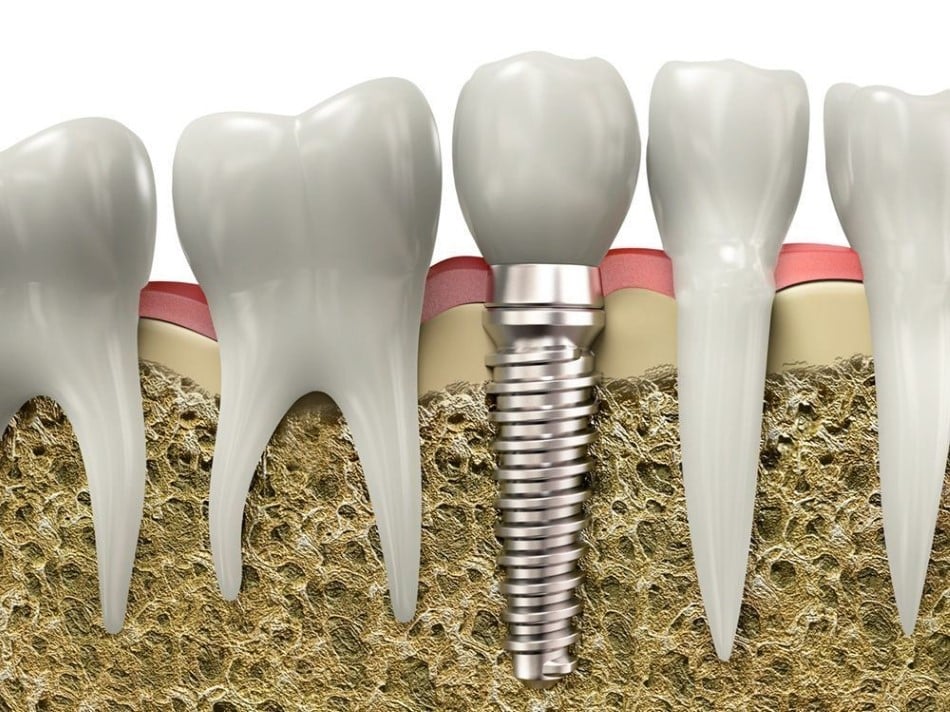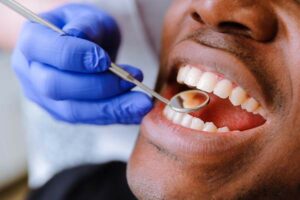Dental implants are the best solution for missing teeth simply because they work just like natural teeth. They feel and look like you never lost them in the first place. A dental implant is a small screw that once integrated into your bone works like a tooth root able to support a crown. Here are a couple situations when dental implants are an ideal option.
When you have lost one tooth

Dental implants work perfectly to replace a single missing tooth. There are cases in which a bridge can also be an option. However, this entails taking two teeth, one on each side, and prepping them as retainer crowns. If these two teeth are perfectly healthy, a dental implant is by far a more conservative option. Because a bridge links at least three crowns together, it can be easily noticeable, because of the splinted contacts. For this reason, a missing anterior tooth is best replaced with an implant. Finally, there are cases in which the patient loses one of the last molars. These are best replaced with dental implants simply because there are no two adjacent teeth available to support a bridge. An alternative will be a cantilever bridge, one that has a single adjacent tooth for support, but given the considerable stress placed on molars due to the chewing forces, this is not recommendable as a long term solution.
When you have lost two adjacent teeth

Dental bridges work best when they have two retainer crowns and only one pontic—that is, a three-unit bridge. If you have lost two adjacent teeth, you will need a 4-unit bridge. This, in case of front teeth can be a viable option because these have little mechanical stress put over them. However, a bridge this long can cause problems on molar teeth. The two retainer crowns must hold not only their normal stress but also the stress of the two pontics. This can sometimes be a risk factor for future fractures. The best solution is to replace your missing teeth individually for an even distribution of forces. This can only be done with two adjacent dental implants. This is even more emphatic if your two missing teeth are the last two molars.
When you have lost three adjacent teeth

If you have lost three consecutive teeth, a bridge will hardly be an option since it will be at least 5-units long. Bridges this long have a high risk of fracture no matter the material used. In cases where three consecutive teeth have been lost the two viable options are either a removable partial denture or an implant-supported, 3-unit bridge. The first option has pros and cons. The pros involve avoiding surgeries and being cost-effective. The cons involve long-term bone loss and the constant attention due to its removable quality. The second is a permanent solution that will also prevent bone loss in the area. This bridge works on its own: it will use two dental implants as retainers to hold one pontic crown. There will be no need to use any of your natural teeth.
When you have lost all teeth in an arch
If you have lost all teeth in one arch there are only two options, a complete removable denture or an implant-supported denture. The removable denture solves an immediate need, but they are often a nuisance as a long-term solution. They require frequent adjustments, they must be removed daily, they can slip, fall, or fracture. However, they are cost-effective, they avoid surgeries, and they can be ready after only a few try ins. On the other hand, there are many benefits in getting dental implants in order to support a permanent implant-supported denture, also known as All-on-4. Roots of teeth preserve the bone density. Once these are gone, the bone starts to reabsorb and loses its height and width, and one of its effects is the ¨sagged¨ look. Dental implants will help preserve the bone level over a longer period of time because they simulate tooth roots. The All-on-4 requires four to six implants for support and about a year in treatment, but it will look and feel almost like your natural teeth for years to come.
At the Costa Rica Dental Team, we always search for those solutions that will prove the most efficient over a long term so you can enjoy a healthy smile for many years. If you believe you fall into one of these categories, do not hesitate to contact us for advice on what is the best solution for your missing teeth.




